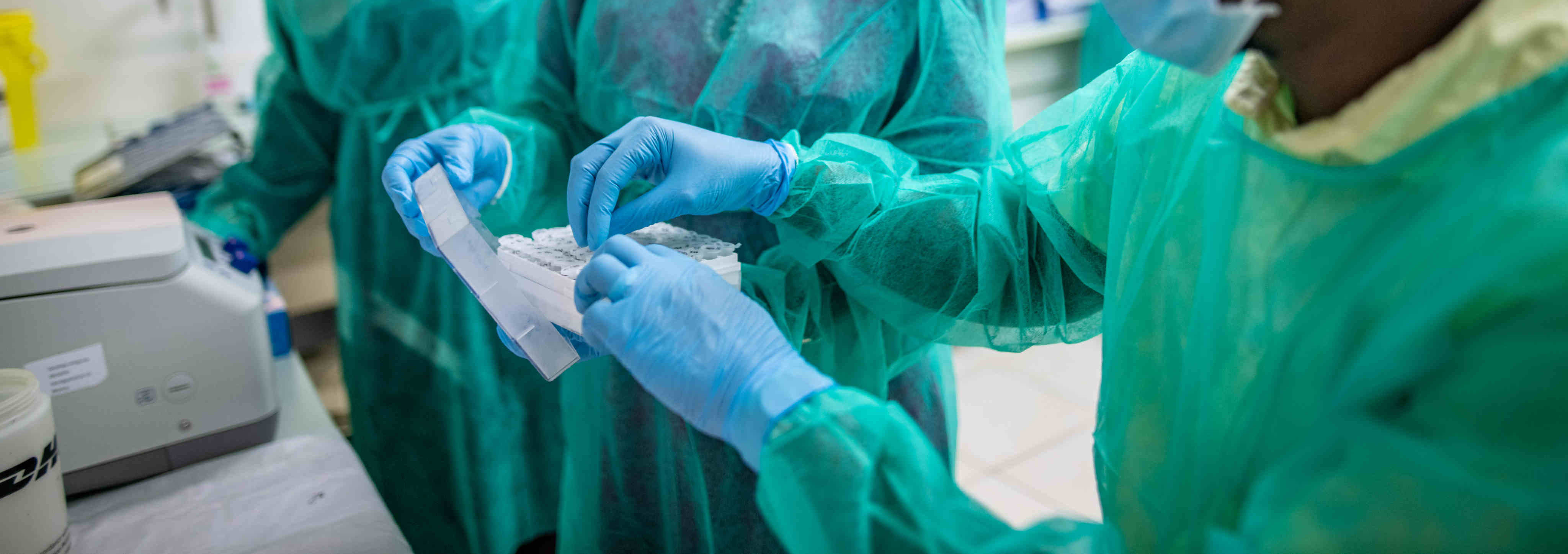
Virtual Workshop: Approaches to Combat COVID-19 in Low- and Middle-Income Countries Workshop
The COVID-19 pandemic has had a devastating effect worldwide and presents unique challenges to healthcare providers, particularly those working in low- and middle-income countries (LMIC).
Often, in LMICs, disease burden is more significant, outcomes are poorer, and demographic characteristics necessitate region-specific approaches to healthcare organization.
Following severe COVID-19 outbreaks, healthcare systems become overwhelmed and struggle to provide essential levels of care to patients.
To respond effectively to COVID-19 in LMICs, we need to develop new contextualized and locally relevant approaches.
The appropriate diagnosis and clinical management of patients are of utmost importance, and inappropriate treatments should be avoided. Global inequities in vaccine distribution have the potential to worsen the pandemic in LMICs. In many countries, there is no established platform for vaccinating an entire adult population.
Delivering vaccines to essential and front-line workers is achievable, but how do we address accessing vulnerable and hard-to-reach populations?
How can these regional differences in access to medications, health care infrastructure, and public health measures be addressed to combat COVID-19 in LMICs?
To address these challenges and provide a platform for exchanging knowledge, we are pleased to announce our new program, Approaches to Combat COVID-19 in Low- and Middle-Income Countries (LMICs).
This exciting workshop will focus on the specific regional challenges for LMICs in the clinical management of COVID-19. Topics of discussion will include how to handle surges, public health, prevention strategies, and focus on vaccines rollout.
Join us virtually on 23 November!
Registration fees are waived for healthcare professionals. For more information on the program and to register for the virtual workshop, please visit our website - https://academicmedicaleducation.com/meeting/approaches-combat-covid-19-LMIC-workshop
Articles
Test Article With Image
Test article 14 July 2025 with image TL
Read moreVirtual Workshop: Recognition And Control Of Mtb Infected Cells: From Basics To The Clinic | 13 – 14June 2023
The Stop
TB Partnership Working Group on New TB Vaccines (WGNV) and the National
Institute for Allergy and Infectious Diseases (NIAID)are
co-hosting a workshop on the topic of Recognition and Control of Mtb
Infected Cells: From Basics to the Clinic. This workshop is intended to address
the need for correlates and to identify platforms that measure recognition or
control of the infected cell - especially in humans - as identified in the EDCTP/AIGHD Global Roadmap for
Research and Development of New TB Vaccines and the Strategic Framework for
New TB Vaccines in the Stop TB Partnership Global Plan to End TB 2023 - 2030.
The overall goals of this workshop
are to:
- elucidate the mechanisms by
which the immune system recognizes the Mtb-infected cell
- explore the degree to which
such recognition can lead to control of the intracellular microbe, and
- discuss the translational
implications of these observations
The workshop format will be largely
discussion-based. Each session will have three short presentations that will
provide a high-level overview of key topics within the session theme, followed
by a discussion between the session chairs, speakers, and participants.
Click here
to view the programme and
speakers.
This workshop is free of charge and
open to any participants interested in this topic.
Ssi/Isid Infectious Diseases Research Fellowships | Deadline For Applications: 16 June 2023
The International Society for Infectious Diseases (ISID) and the Swiss
Society for Infectious Diseases (SSI) are inviting applications for their joint
Infectious Diseases Research Fellowship Program. The purpose of this programme
is to support infectious disease physicians and scientists from under-resourced
countries through multidisciplinary clinical and laboratory training at a
select biomedical institution in Zurich, Switzerland. The one-year SSI/ISID
Fellowship programme is open to applicants who are 40 years or younger,
citizens and permanent residents of under-resourced countries or Eastern
Europe. The deadline for applications is 16 June 2023.
More information: https://na.eventscloud.com/eSites/748378/Homepage